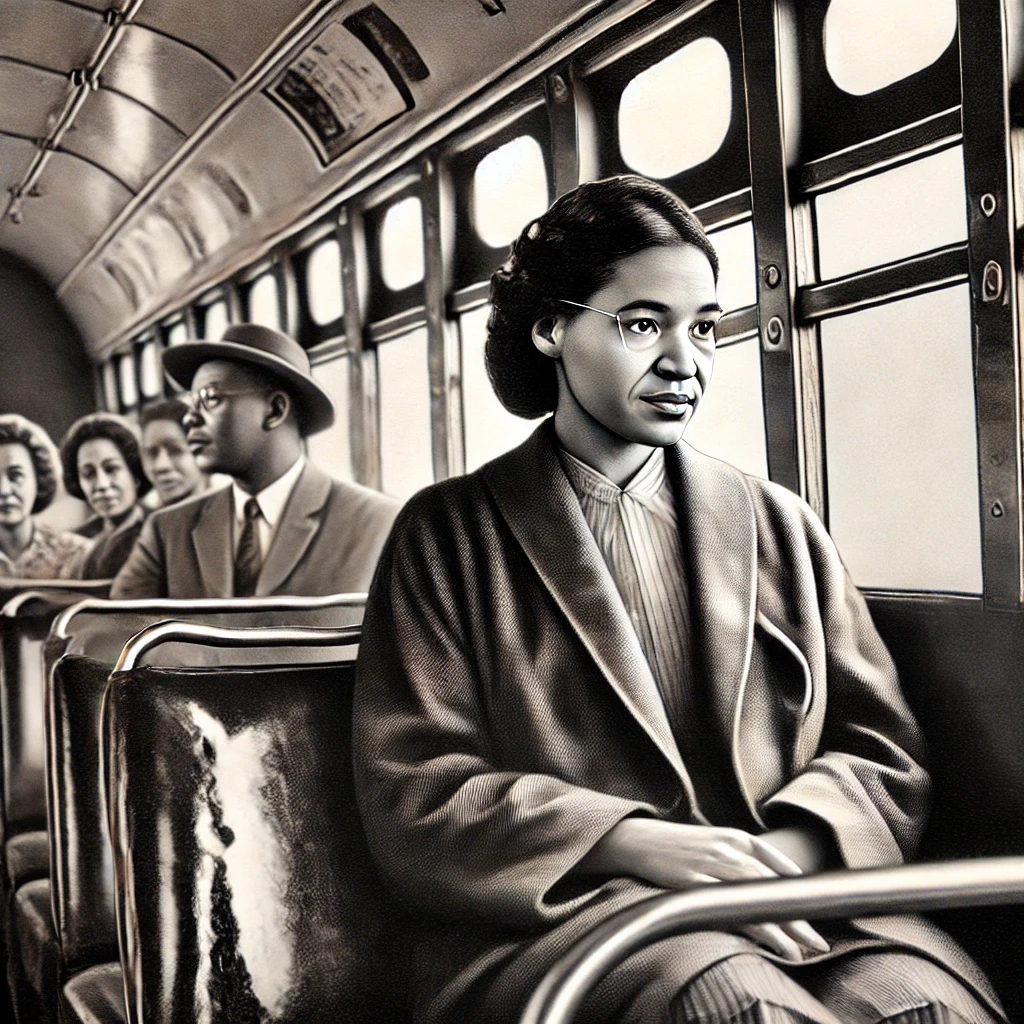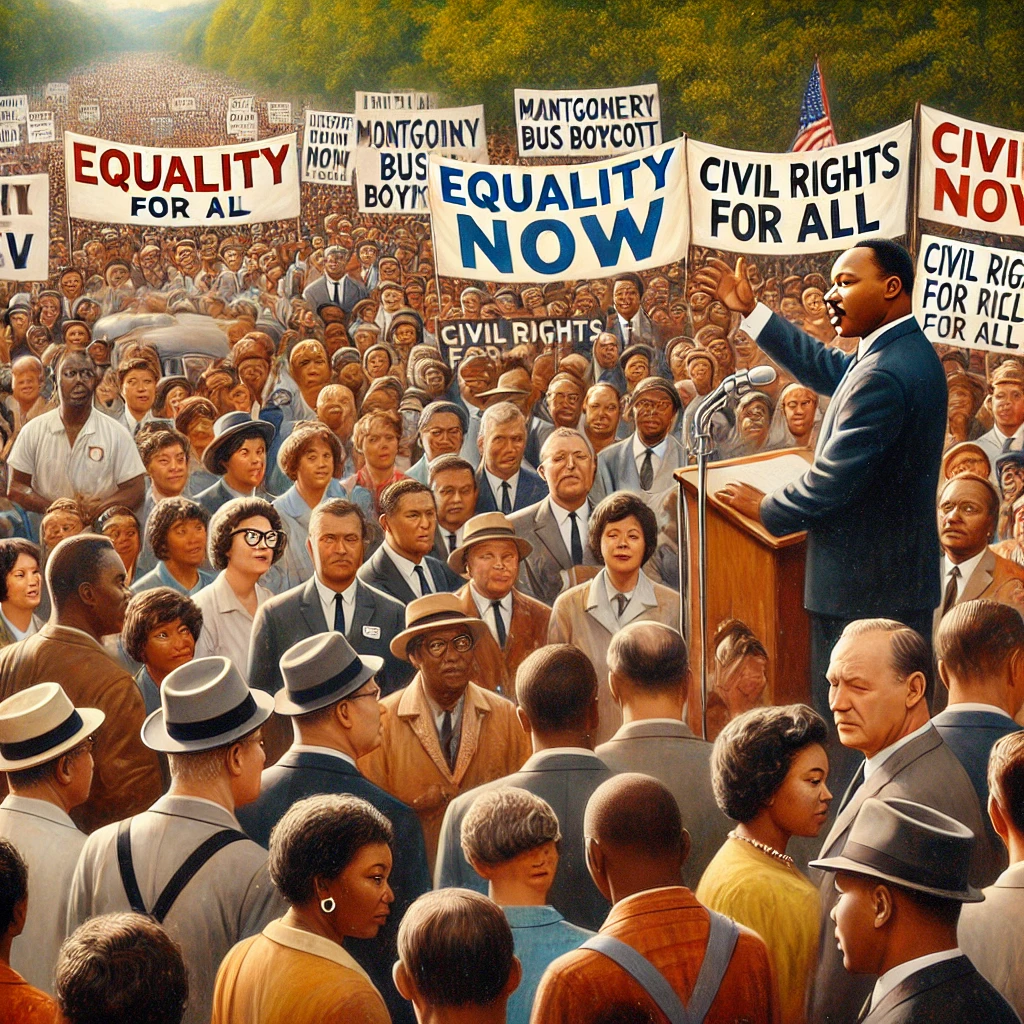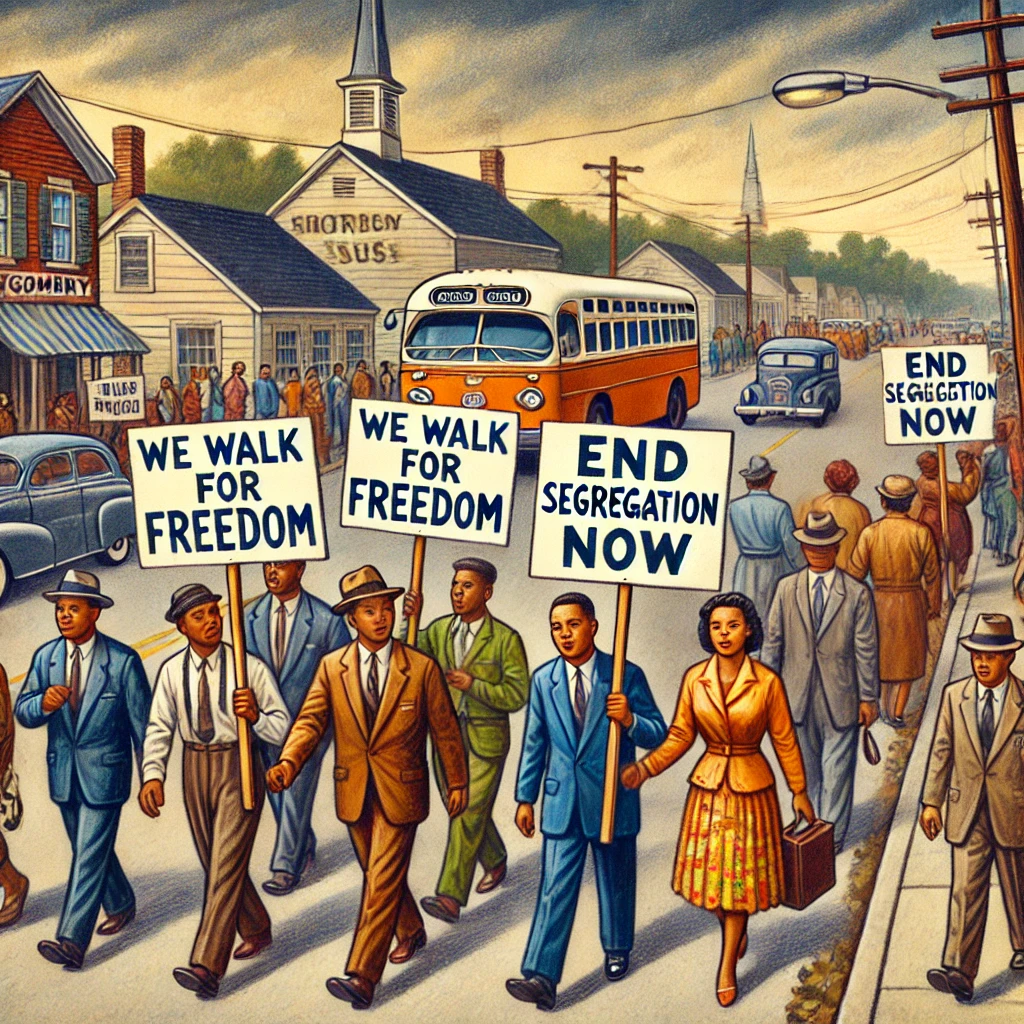On December 1, 1955, Rosa Parks, a seamstress and long-time advocate for racial equality, made a quiet but powerful decision that changed the course of history. While riding a segregated bus in Montgomery, Alabama, Parks refused to relinquish her seat to a white passenger, as required by the discriminatory laws of the era. Her arrest for this act of defiance became a lightning rod for a burgeoning movement, rallying African Americans to challenge racial injustice through peaceful resistance. This moment marked the beginning of the Montgomery Bus Boycott, an organized effort to dismantle segregation in public transportation and beyond.

The Significance of the Montgomery Bus Boycott
The Montgomery Bus Boycott, which lasted over a year, was a unified response by the African American community to decades of systemic oppression. Orchestrated by the Montgomery Improvement Association and led by a young Dr. Martin Luther King Jr., the boycott showcased the power of collective action. Participants walked to work, organized carpools, and endured hardships to avoid using the city’s buses. Their determination not only brought financial pressure to the transit system but also gained national attention, spotlighting the Civil Rights Movement and the inequalities faced by African Americans across the United States.
This boycott was not merely a stand against segregated seating but also a broader challenge to the Jim Crow laws that permeated every aspect of life in the South. It symbolized a pivotal shift in the fight for civil rights, demonstrating the strength and unity of oppressed communities when they stood together for justice.

The Lasting Impact of Rosa Parks and the Boycott
Rosa Parks’ defiance and the success of the Montgomery Bus Boycott resonated far beyond Alabama. In 1956, the U.S. Supreme Court ruled that segregation on public buses was unconstitutional, a legal victory that set a precedent for further dismantling segregationist policies. Parks became an enduring symbol of courage and the power of individual action to drive systemic change. Her story continues to inspire activists and movements worldwide, reminding us of the importance of standing up against injustice, no matter the personal cost.
The boycott also solidified the leadership of Dr. Martin Luther King Jr., who emerged as a prominent figure advocating for nonviolent resistance. His role in this effort laid the foundation for future civil rights campaigns, including the march on Washington and the passage of landmark legislation such as the Civil Rights Act of 1964 and the Voting Rights Act of 1965.
A Legacy That Lives On

Rosa Parks’ stand on that December day serves as a timeless reminder of the transformative power of resistance and perseverance. Her legacy is celebrated every year on Rosa Parks Day, and her story is taught in classrooms around the world as an example of how one person can ignite a movement for change. The Montgomery Bus Boycott, born of her courage, remains a defining moment in American history, underscoring the enduring struggle for equality and justice.
Even today, as societies confront issues of systemic racism and inequality, Rosa Parks’ act of defiance reminds us of the importance of resilience and unity in the pursuit of social progress. Her quiet bravery continues to challenge us to stand up for what is right, ensuring her legacy lives on for generations to come.
